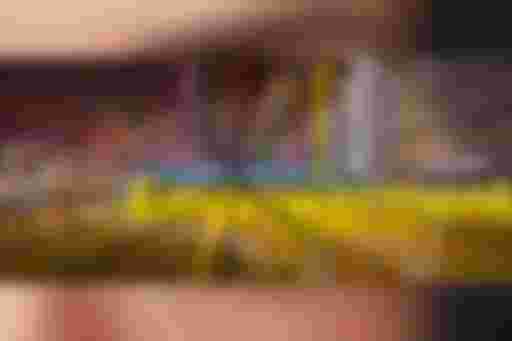You have a talent for art and music, but how do you avoid being the so-called starving artist and make money doing what you love? Well, unfortunately you might not be able to avoid the starving artist pitfalls entirely, but if you stick at it and follow these tips, you might be pleasantly surprised with the outcomes.
You can take your skills and experience and turn them into income with time and persistence. Here’s what you need to do.
Find People Who Are Already Successful
You need to surround yourself with people who have already achieved some level of success in art or music. There is a social aspect to both art and business and you can’t get to either alone. Make a great effort to be on the inside of success instead of on the outside. People are generally more than willing to share how they became successful. Seek out those people and heed their advice, because they’ve already put in the long hours and found what works and what doesn’t.
Don’t start at the top with the most successful artist; go a little more modest and local, and join groups or clubs of other artists so you can learn from and support each other.
When approaching these other artists, be very purposeful. Don’t express that you’re a fan (even if you are), but do be respectful of their work and curious about them to help put you on a more equal ground. Think about how you make friends. You find things in common to discuss. Do that with the artist you’re hoping to learn from. You have a common interest so it shouldn’t be hard to strike up a conversation.
Create What People Want
No, don’t be a sell-out, but you’re not going to make money if you only create art that others are not interested in. Find the audience you want to reach and create works of art that you think they’ll want to buy. From time to time you can think outside of the box more and get ultra-creative, but you need to create things that you know people are going to want even if it’s not your favorite piece of work.
Complete Your Work
Having multiple unfinished pieces of work is not going to make you money. You might have a creative process, but if you never finish your work, then you can't ever expect to sell anything. Make it a goal to finish what you started before you start on something new. Perhaps taking a step back is going to be important from time to time, but don’t step too far back. You can’t sell what’s not finished.

Get Your Work Out There
You have to begin to make a name for yourself. Get your work out there in the public. This might mean giving things away to become known. Encourage others to share your work freely in this manner just to get your name out there. You need to promote your work as well. And remember, if you can’t give it away for free, then it might be time to re-evaluate your work and figure out what’s wrong with it that people are not interested in it.
Take Criticism
You can’t grow as an artist if you can’t take criticism. Listening to what people are telling you about your art and taking action on it will get you to a much better position of being able to sell your work. At the same time, understand that you also can’t please everyone. Don’t change your work too much to conform to the critics.
If you know it’s good quality work and plenty of others that you know and respect agree that it’s good work, then don’t bend over backwards trying to change something. Pay no mind to critics who are clearly not a fan of yours.
Buy Others' Work
If you see work that you like, buy it. Don’t pirate it; purchase it. Show support for your fellow artists and respect for them. It will come back to you if you do right by your community.
Appreciate Your Customers
You can offer a little extra something to those loyal customers who keep coming back and buying more. Think about how any other business works. Take for example a laundry detergent company. They might give out coupons for "buy one get one free". That keeps people coming back for more. You can do similar things, like offering one-on-one time if someone purchases a certain product, or providing signed copies. Customer appreciation is important to any business, even when your business in in the arts.
You can make a living as an artist. You have to be willing to put in the work to do it, though. It is not something that will happen overnight, but you can turn your skills and experience into income.
Tax Tips for Independent Music and Art Teachers
Are you considering giving music or art lessons from your home? Or maybe you’ve already started. Have you taken into consideration what this will mean when it comes time to do your taxes next tax season?
As an independent contractor, there are some things you should know about when you go file your taxes - things you’ll need to protect yourself should you get audited and things you’ll need to know about business expenses and so on. After all, you essentially become a business owner when you become an independent music or art teacher.
If you receive money for a service, then it’s considered income and does have to be reported on your taxes. So here are tips to keep you organized as an independent music and art teacher when it comes to taxes.
Reporting Income

Any payment you receive for your services must be tracked. Income exceeding $600 a year from these sources must be reported on your typical Form 1040. You will likely have to fill out a Schedule C to report your expenses as well.
It’s very important to be organized when it comes to tracking your earnings as well as your expenses. You have to report all income, but reporting expenses will help because that’s going to be what your taxable income is going to be.
Expenses and Deductions
Speaking of expenses and that all-important Schedule C document... you can likely deduct things that you wouldn’t expect you could when you run your own business, especially if you run it out of your home. If you have a specific area of your home that you are using for the express purpose of giving lessons, then you can deduct a portion of your rent or mortgage payment from your taxes. You can deduct $5 a square foot of dedicated space, up to $1500.
Include any other expenses you have for things like supplies that you need for your business. If you’re a music teacher and have to purchase lesson books or you have to purchase extra repair supplies for students’ musical instruments, you can deduct that as an expense. As an art teacher, any supplies or materials (i.e. paint brushes, clay, canvases, etc.) are deductible expenses if they are used for your business.
Advertising expenses can be deducted as well. So if you had to have flyers or business cards created, this is a business expense. If you travel to people to provide the music or art lesson, then you can deduct the gas it takes for you to travel from place to place - and even possibly a portion of your vehicle repairs and expenses (such as leasing or car payment) by taking a ratio of business to personal use.
Heath Insurance
You are now required to purchase health insurance, as even independent contractors must have insurance. If you do not have an employer who provides your insurance and you don’t qualify for an exemption, then you may be able to deduct your health care premium from your taxes - provided you purchase the insurance through your business. Other things like retirement accounts may also be deductible.
Estimated Tax Payments
In order to avoid large tax bills come April 15th, you might need to consider filing quarterly returns or paying an estimated tax payment every three months if you expect to have to owe more than $1000 in taxes.
There are lots of programs out there to help with this, but you also might want to consider finding yourself a tax professional who can help you make sure everything is on the up and up when it comes to your taxes.
Ahh remember to subscribe if you liked this article

